Special Lecture: Political Crisis in South Korea and Northeast Asia Regional Security
The Korean Studies Program, School of Social Sciences,
Ateneo de Manila University,
in partnership with the Department of Political Science and Diplomacy,
Pusan National University
invites you to a Special Lecture
“Political Crisis in South Korea and Northeast Asia Regional Security”
by Dr. Robert E Kelly (Pusan National University)
and Discussion
by Dr. Aileen Baviera (Asian Center, University of the Philippines)
on 5 May 2017 (Friday) | 09:30AM | at Leong Hall, Ateneo de Manila University
ONLINE REGISTRATION REQUIRED (DEADLINE: 30 APR 2017): https://goo.gl/forms/IwP41KnrELH8G6eX2
South Korean politics has been adrift for months. The scandal surrounding impeached President Park Geun-Hye has frozen national politics, creating space for China and North Korea to challenge South Korea over missile defense in Northeast Asia. At home, the scandal revealed serious issues of corruption and governance in dire need for reform. These will occupy whomever wins the presidency in May.
This lecture will start with a basic description of South Korea’s constitutional order. Like the Philippines, South Korea is a presidential democracy with a very powerful executive. But it also includes elements of a prime ministerial, or Westminster, system, including a prime minister and proportional representation. Calls to reform this system, including the duration of the presidential term, are widespread. In the context of this constitutional discussion, the speaker will argue that the South Korean prime minister should probably be changed into a traditional vice-president.
Next will be a discussion of the upcoming special presidential election on May 9. The speaker will discuss the candidates, parties, ideologies, and platforms. A liberal is widely expected to win, and this will likely have a major impact on foreign policy, where the South Korea right and left differ greatly. The left will likely be more accommodating of North Korea and China, while tougher with the US and Japan.
The lecture will then turn to foreign policy issues given the widening gap between Seoul and Beijing over missile defense. This includes the US Terminal High Altitude Area Defense (THAAD) system (I will argue that is generally a good idea), China’s vociferous resistance, and how this is forcing Seoul to choose between the US and China – a choice it has sought to avoid for two decades.
Given the mounting tension on the peninsula, the speaker will also discuss military options against North Korea and why the Trump administration has recently struck such a hardline against Pyongyang. Relevant issues of North Korea’s internal structure – such as the Kim monarchy and its juche ideology – will likewise be presented.
-----------
ABOUT THE SPEAKER
Dr. Robert E Kelly
Robert Kelly is an Associate Professor of the Department of Political Science and Diplomacy, Pusan National University. His work focuses on international security and political economy. His primary areas of interest are East Asian security, US foreign policy, and the Middle East. A second area is the World Bank and International Monetary Fund.
Robert Kelly’s recent scholarly work has focused on the US ‘pivot’ to Asia, and on Confucianism in the geopolitics of East Asia. He has written for journals such as, the European Journal of International Relations, the Pacific Review, and the International Studies Review.
Dr. Kelly also writes regularly for popular publications, including Foreign Affairs, The National Interest, The Diplomat, and Newsweek. He has appeared as an analyst on television newsservices, including the CNN, BBC, and CNBC. He is a contributor to the Economist Intelligence Unit Asia-Pacific section and has visited North Korea. He has consulted for private sector firms for many years on northeast Asia.
PhD: Ohio State University
Fields: International Security; International Political Economy
[ADDITIONAL INFORMATION ABOUT THE AUTHOR (added by the Organizers)]
Prof. Robert Kelly is the person in the BBC video interview that went viral recently. “BBC interview with Robert Kelly interrupted by children live on air” http://www.bbc.com/news/world-39232538 ]
ABOUT THE DISCUSSANT
Dr. Aileen Baviera
Aileen San Pablo-Baviera is a Professor at the Asian Center, University of the Philippines, where she also served as Dean from 2003-2009. She has a visiting professor appointment at the Asia-Europe Institute of the University of Malaya in Kuala Lumpur. Since July 2010, she has served as editor-in-chief of the international academic journal, Asian Politics and Policy.
Having trained in both area studies and international relations, her specializations include contemporary China, Southeast Asia-China relations, Asia Pacific security, with secondary interests in regional integration and Asian civil society. Her recent publications have focused on the South China Sea disputes, Chinese foreign relations, Philippines-China relations, and Philippine foreign policy. Over the years, Dr. Baviera has held visiting fellowships or delivered public lectures at various institutions, and has authored over one hundred published works, delivered presentations and remarks at over 200 international conferences, and convened close to 40 roundtables and conferences.
She has advised pro bono, past or present, the Department of Foreign Affairs, the Department of National Defense, the National Security Council and the Philippine Navy. She has also lectured at the Foreign Service Institute, the National Defense College and various training institutions of the Armed Forces of the Philippines.
As a former member of the East Asia Vision Group, she participated in processes leading to the strengthening of ASEAN Plus Three regional organization. Prior to joining academe, she had been head (1993-1998) of the Center for International Relations and Strategic Studies of the Philippine Foreign Service Institute, and Executive-Director (1998-2002) of the nonprofit development NGO - the Philippines-China Development Resource Center whose mandate was the promotion of Philippines-China development cooperation.
FOR INQUIRIES, please contact 351 1620 / jabucal@ateneo.edu / sdomingo@ateneo.edu / ksp.soss@ateneo.edu
